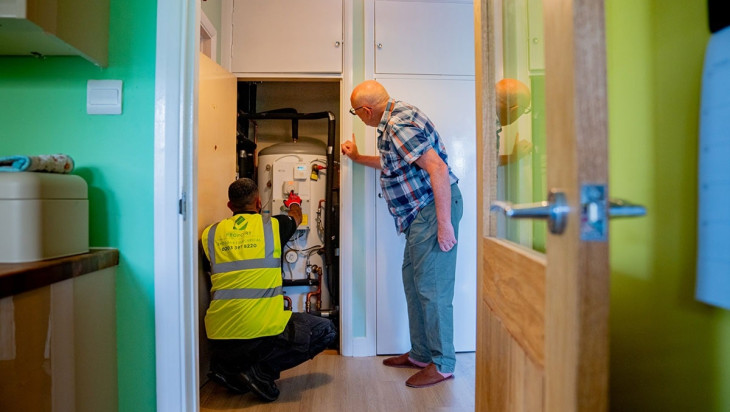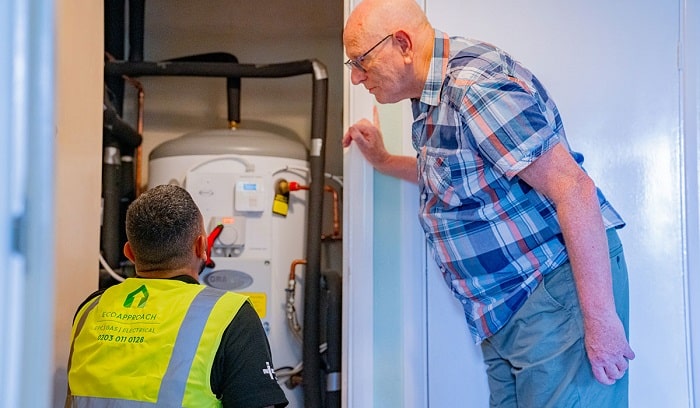
A boiler fault might suddenly become an emergency. When this happens, the consequences can be beyond mere inconveniences. There are serious health, safety, and legal implications to be considered in this regard. Sometimes, a simple, often ignored fault, taken lightly, can convert into a terrible accident. A landlord or homeowner might even face legal action if they fail to address the situation. Unattended faults may, at times, escalate into major disasters resulting in loss of life, money, and property. Hence, emergency boiler repairs are necessary in accordance with UK Gas Safety and HSE regulations.
In this article, we are going to provide a simple guideline for landlords and homeowners on what to do in such an emergency, what actions to take immediately, who to contact, and how to prevent future breakdowns. This guideline is in the context of current UK regulations.
Sometimes a boiler fault is treated as a standard repair. If left unattended, it may escalate into a life-threatening situation. This mostly happens if ignition, combustion, flue integrity, or gas supply is compromised. In such situations, some of the key hazards include:
From the perspective of a landlord or duty-holder, failure to act breaches the Gas Safety Regulations 1998, the Gas Safety Register, and the HSE, and may incur enforcement action.
Every homeowner or landlord should treat a boiler fault as an emergency if any of the following apply:
If any of these faults are observed, they should be prioritized as emergencies and treated immediately by engaging a competent engineer as soon as possible, isolating the area, and, if necessary, evacuating residents.

This is a step-by-step procedure for homeowners, landlords, and tenants to follow in the event of a boiler emergency. These steps are not to be confused with the repair itself; instead, they are Safety-First actions:
You need to observe and assess the level of fault, if you feel it is safe to do so. If found safe, you need to maintain the minimum essential systems until the engineers arrive. This needs to be done in case there are still residents in the building who need to be kept warm. If you think any such action might compromise safety, then turn it off if you can and use blankets, space heaters, etc. to stay warm while waiting.
After ensuring the safety of the residents and isolating the boiler, you need to contact a qualified engineer or the relevant emergency service. The engineer should be Gas Safe Registered. Make sure to check the engineer’s registration number, inquire with him about the plan for the boiler inspection, and mention the actions you have already documented and performed regarding safety.
If you are the landlord or building manager, it is your duty to inform all residents of the incident. Making them aware of the problem, what you have done about it, and what will happen once the engineers arrive is essential. You also need to confirm whether everyone has alternative heating sources if the boiler has been turned off for any length of time.
When the engineer arrives at your building, he will perform the following tasks as per his checklist:
If your engineer skips ay of these steps, you need to question him about it and make sure he documents the exact reason why he left out a specific step.
For your convenience, we have compiled a list of common emergency boiler faults and their causes. The following are some of the scenarios you might face:
Although safety is a vital first priority, you also need to understand the costs and timescale of repairs. Some typical factors in this regard are:
As you well know that prevention is the key to avoiding emergency incidents, we have compiled a list of best practices for you:
Emergency boiler repair is not about people complaining that the heating has stopped working. It may turn into a gas safety event, which might demand an immediate, professional reaction from the relevant teams. Rapid and accurate action in such an emergency is what is needed in order to protect lives, properties and to adhere to the legal processes.
Fill the required information to order a gas safety certificate instantly.
Are you curious about your Gas Safety Certificate? With these simple steps, learn how to check its status and ensure your peace of mind.
Find out why your boiler is vibrating loudly. Explore causes, troubleshooting tips, and the importance of prompt repairs for a quiet and efficient heating system at home.
Gas engineers perform a gas safety check to ensure your gas appliances are safe. Read to learn what more you can expect from the gas safety check.
Learn about the importance of gas safety certificates for landlords and the legal consequences of not having a valid certificate.
Know your tenant rights: How long can a UK landlord leave you without hot water? Stay informed, assert your rights.
Every landlord in the UK is legally bound to follow gas safety regulations as per the Gas Safety (Installations and Use) Regulations 1998.
Fill out the following enquiry form and we will contact you as soon as possible.